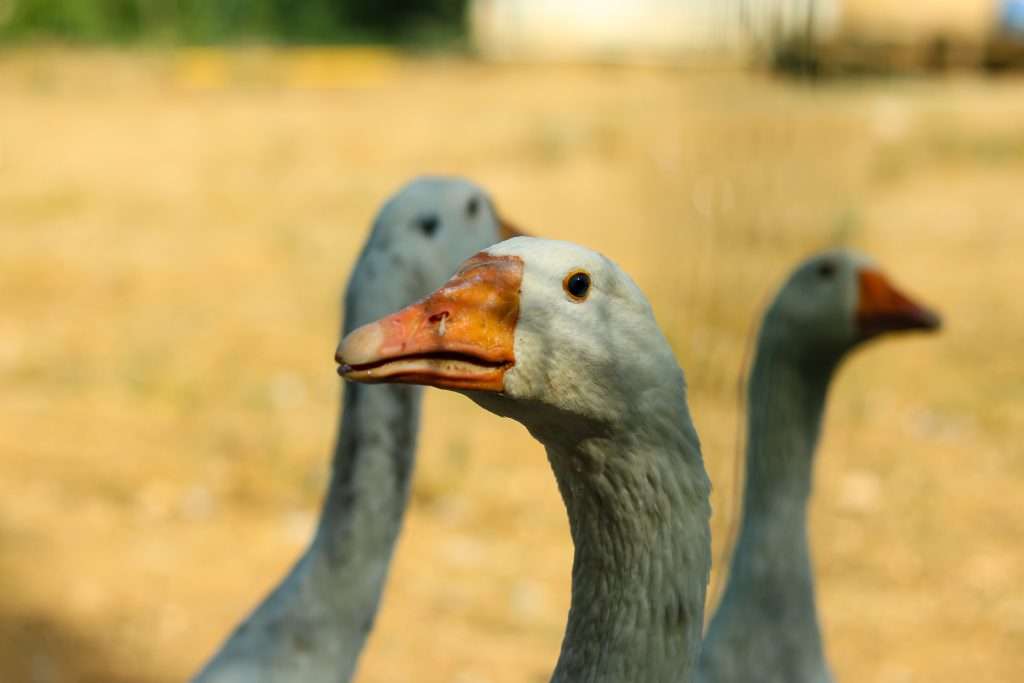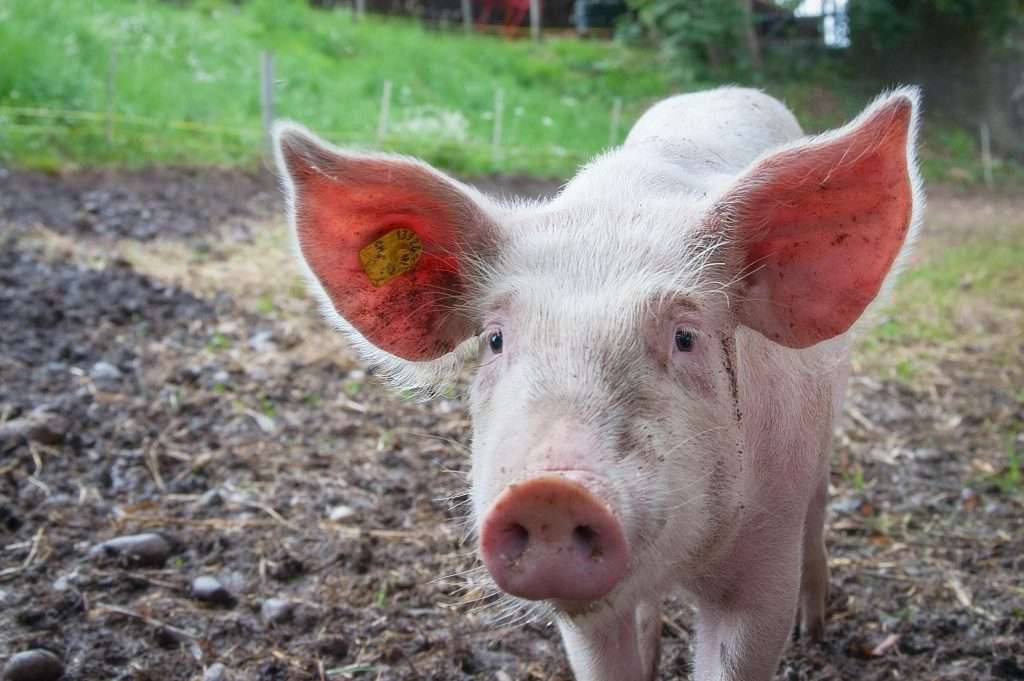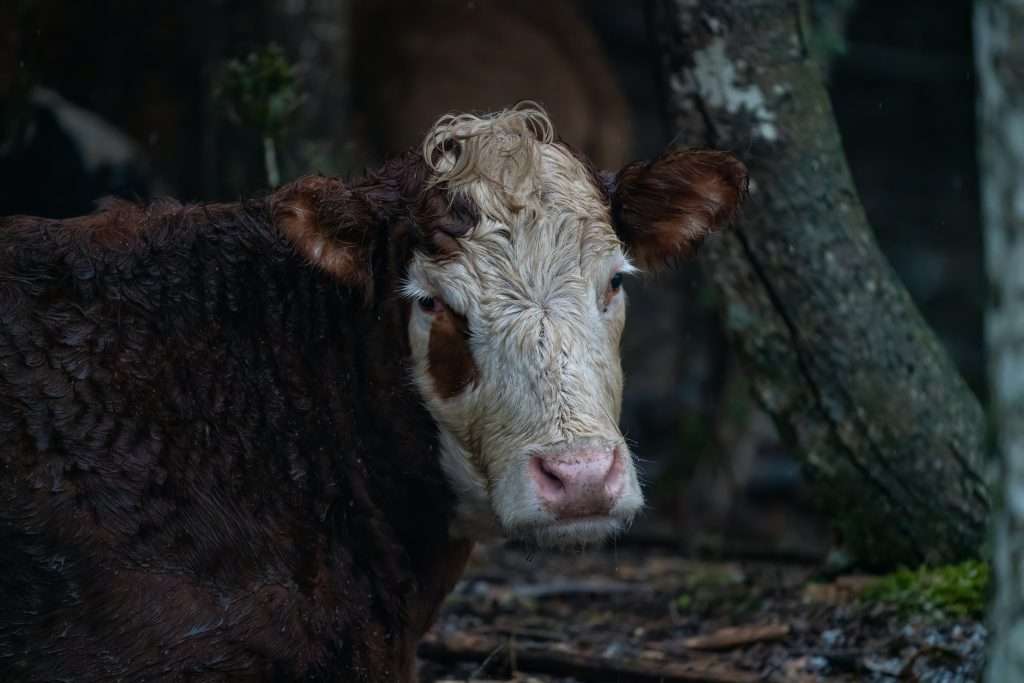A Thrivable society aims to create wellbeing for all life on Earth. A truly Thrivable society is one in which both environmental and social sustainability are pursued in a holistic manner. We must go beyond mere sustainability to ensure ecological and social well-being. It’s no secret that the state of animal welfare on the planet, taken as a whole, is in need of massive overhauls. Stricter animal welfare laws are vital to achieving Thrivability and may in fact benefit us all.
stricter animal welfare laws benefit humans
SDG12: Responsible Production and Consumption features one particularly significant area of concern: animal agriculture. Animal agriculture is a focus for many reasons; from GHG emissions, to deforestation and biodiversity loss, to ocean depletion. Animal agriculture can also be linked to highly adverse health issues. This includes the threat of antibiotic resistance and zoonotic diseases. Improving animal welfare will drastically improve health expenditure. Massive improvements to environmental issues and growing public health threats are on the horizon if we improve animal welfare.
Additionally, the way animals are treated within society needs to be examined for the benefit of the animals themselves. As living beings, animals deserve to experience better living conditions. Animals also deserve to be recognised as sentient beings. For the sake of animals as well as humans, better animal welfare policies are sorely needed.

animal welfare laws Create thrivability
Studies have shown that people who are empathic towards animals are more likely to also be empathic towards other humans (Signal, et al, 2015). It follows then, that if we want a more compassionate and empathic society, we should promote empathy for animals. Practical empathy in the form of better animal welfare standards would facilitate better social relations among people. In particular, teaching young children to have empathy with animals will produce better outcomes (Ladny, et al, 2019).
Children who witness intimate partner violence grow up with negative developmental and psychological impacts, including trauma. Children who grow up to witness animal cruelty also experience significant trauma and go on to develop anxiety and depression (Ladny, et al, 2019). The trauma is compounded in children who witness domestic violence alongside conjunctive animal cruelty. These children show greater mental health issues later in life, including more severe anxiety and depression (Girardi, et al, 2015) (Hawkins, et al, 2019).
In legal cases, the outcomes of custody disputes are often swayed by the presence of animal abuse within the home. Court orders concerning animal welfare and pet protection in family and domestic violence cases are also prevalent (Randour, et al, 2019) (Bargaric, et al, 2022). Because animal abuse frequently happens alongside other forms of family violence, the need to combat animal abuse has been recognised at the state and federal level in policy and legislation (Randour, et al, 2019).
Animal Welfare Laws, Violence and Mental Health
Animal cruelty is disproportionately present in cases involving child abuse, partner abuse and sibling abuse (Smith-Blackmore, 2020). From a criminality perspective, the likelihood of violence towards humans is 5 times higher in people who have abused an animal (Livingstone, et al, 2001). Additionally, 43% of school shooters have abused animals (Arluke, et al, 2013).
One study reveals that children who have enacted cruelty to an animal were also twice as likely to have experienced serious abuse (McEwen, et al, 2014). From a clinical perspective, animal cruelty has been considered a symptom of conduct disorder since the 1980s (Pichot, 1986). This demonstrates that animal welfare has been relevant within Criminology and Psychiatry for many decades. The correlation between abuse of animals and intimate partner abuse, abuse against children, and other interpersonal violence is therefore clear (Ascione, et al, 2016).

Legal and Cultural Attitudes
Addressing animal abuse within the home at a policy level ensures better protections of pets within the household and better animal welfare generally. This in turn ensures greater mitigation of other consistent abuses, and other criminal behaviour (Smith-Blackmore, 2020). Interestingly, some proposals made by researchers for Australian law aim to recognise animals in a similar way to victims of domestic violence (Bargaric, et al, 2022).
It is clear how better animal welfare policies are likely to generate better conditions for children and adults and produce better mental health outcomes (Ladny, et al, 2019). Australia already recognises the importance of better animal welfare laws, but more concrete legislation is needed. Many countries, including some wealthy countries, are lagging behind when it comes to animal welfare laws.
Public Health
Additionally, animal welfare standards are also closely linked to public wellbeing and public health. Better animal welfare laws directly mitigate the risks of emergent zoonotic diseases (Naguib, et al, 2021) and help tackle the increasingly serious problem of antibiotic resistance (O’Neill, 2016).
Animal welfare laws and the environment
Better animal welfare laws and policy has a dramatic positive benefit on the environment. This is mostly due to mitigating the impacts of animal agriculture. In our current world, animal agriculture causes massive environmental harm. Animal agriculture creates a third of all GHG emissions and is the highest source of Nitrous Oxide and Methane. It is also the largest cause of deforestation and eradication of carbon sinks in the world (Eisen et al, 2022). These environmental harms are mostly the result of the poor conditions that the animals raised and farmed in the machinery of animal agriculture endure. Therefore, addressing animal welfare directly addresses these ills.
While it is true that populations of grazing livestock account for huge levels of deforestation and biodiversity loss, and that overfishing depletes the oceans, the most devastating impacts of animal agriculture are created by factory farming and intensive animal agriculture. Factory farms are the leading cause of deforestation. This is because land needs to be cleared to grow feed for factory farmed animals. Factory farms also necessitate excessive water use and create damaging waste run-offs into waterways (Zhongming, et al, 2018).
If we were to eliminate animal agriculture entirely, all of these issues could be negated. However, the transition to a new model of agriculture would take many years to complete. So, reforming factory farms and intensive animal agriculture is our best bet. This should be done not only for the environmental benefits but for the welfare of the animals themselves.

Animal Welfare Policies
Frankly, we must regulate the conditions of factory farms. The factory farming system is optimised for meat yield at the cost of both animal welfare and produce quality. The conditions that animals on factory farms endure are terrible. They include overcrowding and chronic stress, lack of fresh air, water and sunlight, concrete floors and poor food. These conditions harm the animals and directly contribute to the environmental harms mentioned above. The solution might be to transition to a model of agriculture that employs ecological principles.
Many governments have sought to eradicate factory farming. However, these plans have focused on slow transitions to a new model of agriculture. In recent years, some companies have created initiatives that aim to accelerate this transition. This is mostly a response to changing community attitudes (Bovay, et al, 2019). Despite these initiatives, it is clear that government intervention is obviously required. However, governments face many obstacles including lobby groups connected to pre-existent industry titans. This form of lobbying has even occurred at the UN level. Governments are also tempted by the short-term GDP interests of our current agricultural model. We must address animal welfare issues as we phase out factory farming, to mitigate the most devastating impacts.
Policy Progress
Some progress regarding specific products and practices has been achieved. In many countries, the force-feeding of ducks and geese to produce Foie Gras has been banned. Many countries also exercise import bans on this product. As well as this, the live boiling of crustaceans is banned in Northern Italy and Switzerland.
The RSPCA (Royal Society for the Prevention of Cruelty to Animals) plays a vital role in animal welfare in the UK and Australia. The RPSCA recommends a similar policy concerning crustaceans in these places. They promote humane methods to kill crustaceans, which should only be done by professionals (RSPCA, 2023). These guidelines have been largely successful. In other words, the food industries in these countries have largely taken to these guidelines. However, in many cases there exists a lack of official legislation.
Some policies regulating the treatment of pets and domestic animals have been very successful. These include bans on the use of dog crates, for example. Laws dictating the standards required for keeping an animal focus on having enough space for exercise and emotional wellbeing. Other common issues include neglect and excessive discipline. We need a review of existing policy to tighten any existing loopholes that might allow abuse to occur. Also worth mentioning are laws that regulate hunting. Many of these laws stipulate humane methods of killing animals for food or in pest management.

The State of Animal Welfare Laws Around the World
Unfortunately, in some countries, no animal welfare policy or regulation exists at all. Animal cruelty is particularly prevalent in China. As well as this, the United States and some states in particular, also do not possess remotely adequate protections for animals.
Wet markets in countries in the Far East and the South East of Asia prove hard to regulate. Stronger animal welfare laws might prevent the abuse of animals that is so common in wet markets. Wet markets are also frequently sites where zoonotic transference can occur. In many wet markets, animals raised on factory farms or on informal farms come into close contact with wild animals, and this creates the conditions for viruses to spread or cross over to humans.
In Australia, the RSPCA broadly promotes high standards for animal welfare. The RSPCA relies on the government to help enforce its standards. However, it also advises on legislation (RSPCA, 2023). Within some governments, advisory groups alongside Animal Welfare advisory committees can have influence on animal welfare policy. This is often in contest with heavy lobbying from industry interests that promote short-term GDP gains and industry profitability. Considering the extremely adverse consequences of intensive animal farming, due consideration should be given to such advisory groups and independent bodies like the RSPCA ahead of short term economic factors which are unsustainable.
Greater measures to prevent zoonotic disease, and environmental and climate change impacts should exist in conjunction with better animal welfare laws. The United Kingdom has introduced unprecedented legislation recognising animals as sentient beings and affording them protections. This move mirrors similar actions taken in countries such as India and Switzerland who have similar laws. The fact that an economically advanced power is willing to make such changes should act as a precedent for other countries to follow.
Moving Forward
The impact of appalling animal welfare conditions in many countries poses existential threats to humanity. Animal agriculture exacerbates the climate crisis we are facing, as it is likely to be the number one cause of GHG’s within the next 30 years if left unmitigated (Grain, 2018). The negative impacts that animal agriculture has upon public health and social wellbeing is a significant reminder of why the horrific conditions many animals are subjected to on factory farms must be mitigated by law.
The most advanced democratic nations claim to support animal welfare. Mostly, they do this domestically. Not enough is done to mitigate this issue globally, particularly regarding food consumption. Stronger policy leadership is needed if developing nations wish to be leaders in sustainable development.

why Is it essential that we focus on this issue?
If we truly want to create a sustainable and ethical world, the state of animal welfare must change. Currently, billions of animals are used for food production each year. These animals are largely treated in ways that would appal most people if they were witnessed.
Most of the sentient beings that live on the planet are used for food. There is a clear disharmony present within the factory farming model that has real ecological implications. The myriad of health, social, environmental and economic impacts that animal abuse creates is a clear warning that we must change. We need better industry standards as a matter of urgency. However, more broadly, we need laws to recognise and protect animals as sentient beings.
A THRIVABLE Framework
At its core, sustainability simply means the ability to continue to survive. ‘Thrivability‘, by contrast, is the next step, beyond sustainability. THRIVE believes that humanity can do better with the knowledge currently available to us. We want to instil the idea that sustainable solutions not only prevent disaster, but offer the potential for societies to flourish.
The THRIVE Framework examines issues and evaluates potential solutions in relation to this overarching goal of thrivability. It is about making predictive analyses using modern technology that support environmental and social sustainability transformations. We must transition away from the factory farm model of animal agriculture if we are to have any chance of creating thrivability.
Thrive is concerned with issues fundamental to safeguarding the Thrivability of society as well as that of all creatures within the Earth’s biosphere. Given that stronger animal welfare laws strongly adhere to SDG 12 ‘Responsible Production and Consumption’ it is clear how much regard needs to be given to animal welfare in this regard, within industry and within society broadly, to enable a more responsible societal template from which impacts on the environment, public health, mental health and the economy can be mitigated.
To learn more about how The THRIVE Project is researching, educating and advocating for a future beyond sustainability, visit our website. You can follow our informative blog and podcast series and learn about our regular live webinars featuring expert guests in the field. Sign up for our newsletter for regular updates.























